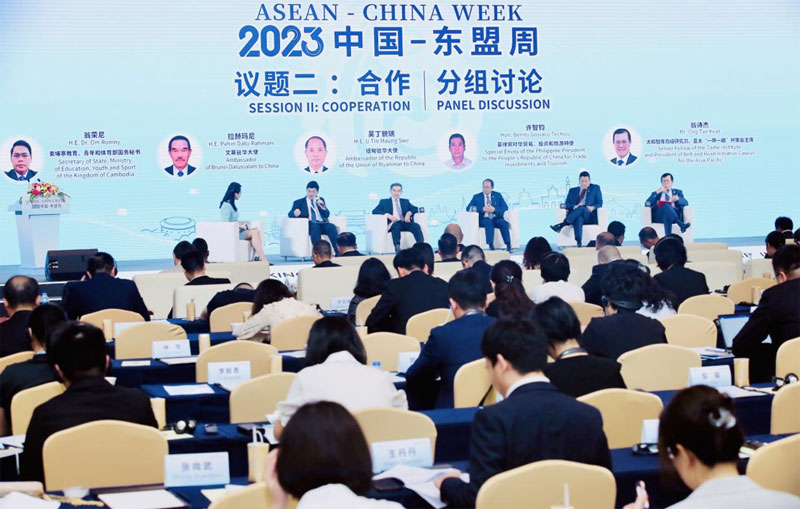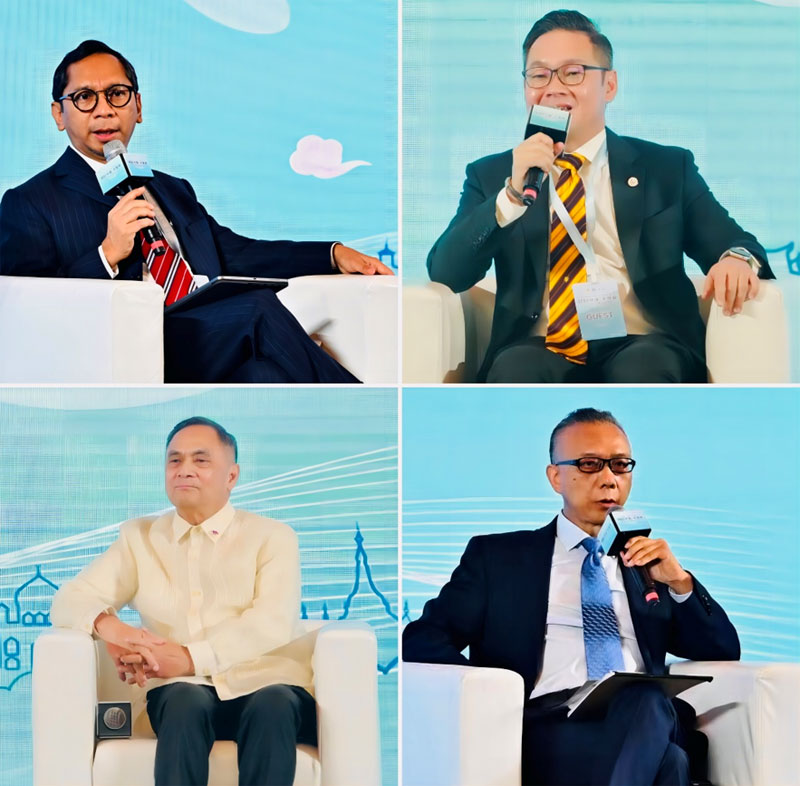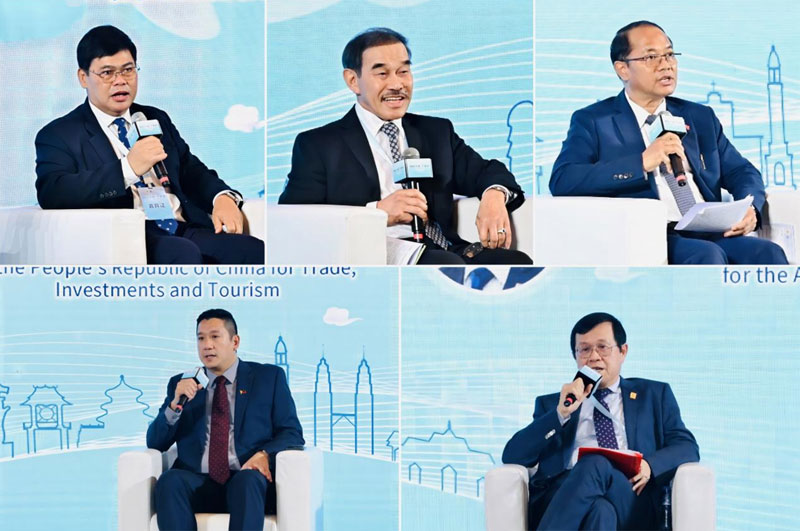On 6 August 2023, the highly anticipated themed forum of ASEAN-China Week 2023 was successfully held in Fuzhou, Fujian Province. The forum, titled "A Forward-looking ASEAN-China Comprehensive Strategic Partnership (CSP) in the New Era", brought together nearly 300 participants in attendance, including high-ranking dignitaries, government officials, think tank experts and media representatives from both China and ASEAN Member States (AMS), and diplomatic envoys from AMS in China. They had an in-depth exchange of views on such crucial aspects as Connectivity, Cooperation and Creativity navigating the future growth of ASEAN-China cooperation in various fields.

The three-phased discussions witnessed insightful remarks by and heated discussions among the distinguished panelists from AMS and China, and AMS Embassies in Beijing, namely Secretary Ayodhia Kalake of the Coordinating Ministry for Maritime Affairs and Investment of Indonesia, Secretary of State Om Romny of Education, Youth and Sport of Cambodia, Special Envoy Benito Techico of the Philippine President to China for Trade, Investment and Tourism, Deputy Minister Michael Tiang Ming Tee for Public Health, Housing and Local Government of Sarawak, Malaysia, Ambassador Rahmani of Brunei, Ambassador Arthayudh of Thailand, Ambassador U Tin Maung Swe of Myanmar, Ambassador FlorCruz of the Philippines, Ambassador Tan Hai Chuan of Singapore, Chargé d'Affaires ad Interim Sanmugan of the Malaysian Embassy, President Xu Bu of China Institute of International Studies (CIIS), President Wan Huiyao of Center for China and Globalization, and Senior Fellow Ong Tee Keat of the Taihe Institute.

On Connectivity, the panelists emphasized the great significance of quality connectivity between ASEAN and China in the future advancement of ASEAN-China comprehensive strategic relationship. They underscored the achievements and progress of such flagship projects as the Jakarta-Bandung High Speed Railway and China-Laos Railway. They also shared their recommendations on how to better synergize the Master Plan on ASEAN connectivity (MPAC) 2025 and China’s Belt and Road Initiative, and how AMS can contribute more in terms of improving connectivity in other important aspects besides infrastructure, including policy coordination, unimpeded trade and enhanced people-to-people exchanges, especially among youth and media communities, so as to add strength to a trusted and enriched partnership between ASEAN and China.

On Cooperation, the panelists took stock what have been achieved by ASEAN and China in multi-faceted and multi-layered pragmatic cooperation in more than three decades, which has yielded enormous tangible benefits for the countries and peoples in the region. Against the backdrop of post-pandemic recovery of global economy, the panelists all agreed to explore more possibilities and tap on more potential in terms of expanding domains for cooperation to reap in more outcomes. They also stress the importance of promoting agricultural development, ensuring food security, bringing into fully play of the RCEP, stabilizing industrial and supply chains, supporting the development of SMEs, creating more job opportunities, stepping up efforts in growing blue economy, so as to materialize a steady, sound and sustainable economic growth and social progress in our region and the world at large.

On Creativity, the panelists reaffirmed the importance of innovation to achieve economic growth in an age of information and digitization. They exchanged perspectives on how ASEAN and China can adapt to the latest and ever-changing economic landscape being constantly shaped by new technologies such as artificial intelligence, cloud computing, green transformation and quantum explorations, which are posing both opportunities and challenges for the regional countries. They emphasized the need for effective and efficient collaboration in building a robust digital ecosystem that could better leverage and harness the power of emerging technologies to drive economic growth. They also discussed the importance of promoting digital literacy and skills development to ensure that all stakeholders can benefit from the digital transformation.